- Katie Davidson
Choose the health content that’s right for you, and get it delivered right in your inbox.
“With the recent increase of COVID-19 cases in our community and the severity of illness we are seeing in our hospitalized COVID patients, we are offering this treatment in hopes of lowering the numbers of hospitalized COVID patients and improving our patients’ symptoms and recovery from COVID-19.” said Anita Cornett, MD, Chief Medical Officer.
What are monoclonal antibodies (MAB) and how do they work?
Monoclonal antibodies are proteins that mimic the immune system’s ability to fight COVID-19 and are made in laboratories to help prevent infection.
Since our immune system relies on antibodies to detect and destroy harmful substances like viruses, monoclonal antibodies are doing the same thing but in a more controlled way, flagging and blocking harmful infections from entering our cells — COVID-19, in this case.
What are the treatments like?
AdventHealth Manchester’s MAB treatments of REGEN-COV are given by intravenous infusion (through your veins). It’s an outpatient procedure for referred patients who tested positive for COVID-19 and are at high risk of developing a more serious case of coronavirus.
Who is eligible for treatments?
MAB infusions should be used for patients 12 and older with an active, mild-to moderate COVID-19 case, who are at risk of progressing to a severe case that would lead to hospitalization. This includes anyone with the following conditions:
♦ Cardiovascular disease
♦ Chronic kidney disease
♦ Chronic lung disease
♦ Diabetes
♦ High blood pressure
♦ Immunosuppressive disease or treatment
♦ Medical-related technological dependence
♦ Neurodevelopmental disorders
♦ Pregnancy
♦ Obesity
♦ Older age (65 and older)
♦ Sickle cell disease
♦ Other medical conditions or factors
If you think you or a loved one might be a candidate for MAB treatments at AdventHealth Manchester, talk to your primary care provider. If your doctor thinks you’re at risk of progressing, you should be referred immediately and start the infusion as soon as possible. No visitors are allowed with patients in the MAB infusion clinic at this time, but wheelchair assistance can be provided.
For more information on these treatments or anything related to COVID-19, visit CoronavirusResourceHub.com.
Recent News
AdventHealth purchases 17 acres in DeLand
AdventHealth purchases 17 acres in DeLand
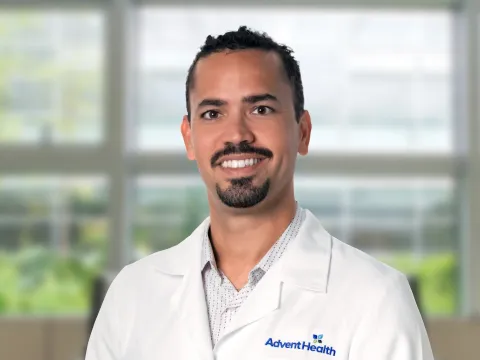
Albit Paoli, MD joins AdventHealth Medical Group Orthopedics & Sports Medicine
AdventHealth is pleased to announce that Albit Paoli, MD, has joined AdventHealth Medical Group Orthopedics & Sports Medicine at Calhoun and AdventHealth Medical Group Orthopedics & Sports Medicine at...

AdventHealth expands access to primary care in the heart of DeLand
AdventHealth has opened a new Primary Care+ location in the heart of downtown DeLand, giving residents a simple way to get everyday care close to where life happens. The primary care practice offers...

Fueling healthy futures for Flagler’s student athletes
Early practices, full class schedules, and evening games can push student athletes to their limits, and proper nutrition is essential to keeping them strong and focused. AdventHealth has introduced...
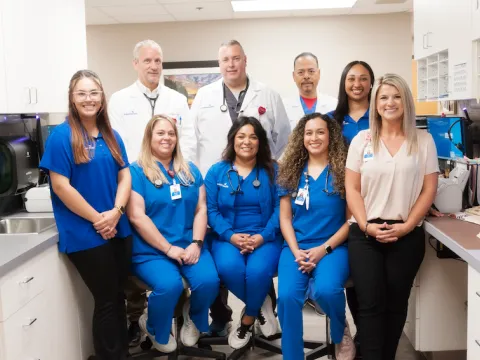
AHMG Cardiology at Dalton earns nuclear cardiology accreditation
AdventHealth Medical Group Cardiology at Dalton has earned a three-year accreditation in Nuclear Cardiology from the Intersocietal Accreditation Commission (IAC).
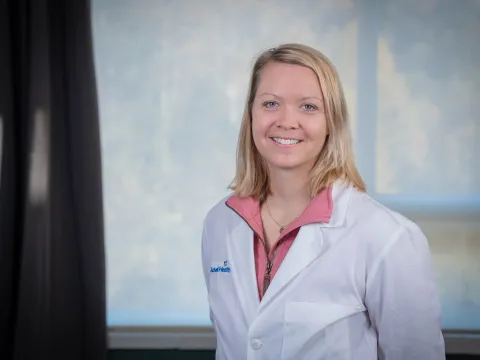
New orthopedic provider expands access to compassionate care for families in WNC
AdventHealth is welcoming Beth Mitchell, PA-C, an experienced orthopedic provider bringing warm, whole-person care to patients across Haywood County and the surrounding Western North Carolina region.

When seconds count: How a community of heroes saved one little girl
It was a day like any other — until the phone rang. For Ellison’s mom, that call froze time: “You need to get here right away.”

AdventHealth expands neurology services in West Volusia
Board-certified neurologist Dr. Zarmina Mufti has joined AdventHealth Medical Group and is now caring for patients at AdventHealth, expanding access to expert, whole-person neurological care for...

Avon Park man receives innovative, non-invasive prostate treatment now available in Highlands County
When Marc Marasigan went to the Emergency Department at AdventHealth Sebring, he thought he was dealing with a stubborn fever and some back pain. Instead, that visit uncovered a kidney stone and a...
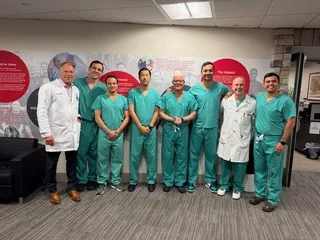
Pursuing excellence in knee surgery: Colorado Joint Replacement hosts Insall Traveling Fellowship
The international program that brings leading knee surgeons together to learn, collaborate and elevate the future of joint care.
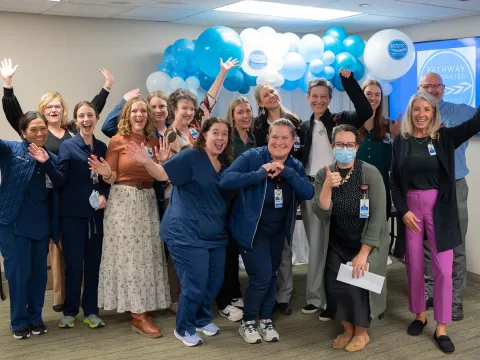
Strengthening patient care in WNC: AdventHealth Hendersonville earns new nursing recognition
AdventHealth Hendersonville has been designated as a Pathway to Excellence® organization by the American Nurses Credentialing Center (ANCC), a recognition that highlights the hospital’s commitment to...

An ocean between them, and a calling that reunited them
After seven years apart, sisters Maricar Olsen and Ermeliza Ortiz were reunited in a place they both now call home. Their journey from the Philippines to Central Florida is a story of faith, family...

